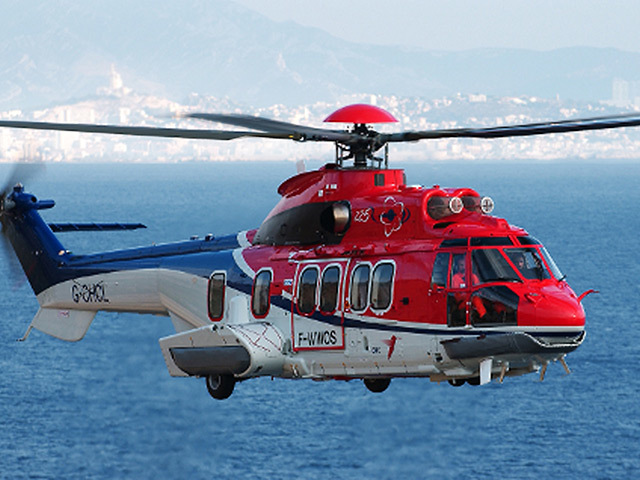
Airbus Group SE announced the first of what may prove to be thousands of job cuts across its business, saying it will eliminate 582 posts at its helicopter arm following a slump in demand from the oil and gas industry and a fatal crash that grounded one of its most popular models.
The cuts will come at the main Airbus Helicopters base in Marignane, near Marseille, which has an 8,944-strong workforce, and La Courneuve, on the outskirts of Paris, which employs 750 people, and amount to about 6 percent of the unit’s French payroll. The division has about 23,000 staff worldwide.
The loss of an H225 Super Puma in the North Sea on April 29, which killed 13 people, prompted the European Aviation Safety Agency to ground the model after a probe found that the main rotor hub had detached from the gearbox. While EASA lifted the ban on the heavy-lift model after recommending modifications, it remains in place in Norway and the U.K., curbing flights with the oil industry workhorse and denting vital services revenue for Airbus.
Helicopter operations among oil and gas companies were already on the decline as the lower price of crude led them to rein in flights. Airbus also sold more light models in the first nine months and accrued unspecified “campaign costs,” the Toulouse, France-based company said in an earnings release, with helicopter profit falling 17 percent to 200 million euros ($219 million).
German Transfers
Chief Executive Officer Tom Enders wrote to employees in September saying a round of job cuts was planned as part of an effort to pare costs and better match output to demand, especially at Airbus’s helicopter and A380 superjumbo operations. At the same time he ruled out measures on the scale of a 2007 program that eliminated 8,000 posts and led to the sale of two U.K. factories.
Airbus Helicopters spokesman Yves Barille said the current cuts, due in 2017 and 2018, would come via voluntary departures and that there are no plans to eliminate positions elsewhere. Over the summer the unit moved some workers from France to Germany, where it has almost 6,900 staff and builds the lighter H135 and H145 models, the mid-size NH90 and the Tiger attack helicopter.
Airbus as a whole had 137,000 workers worldwide as of July, with 55,000 of them employed at its main jetliner division.